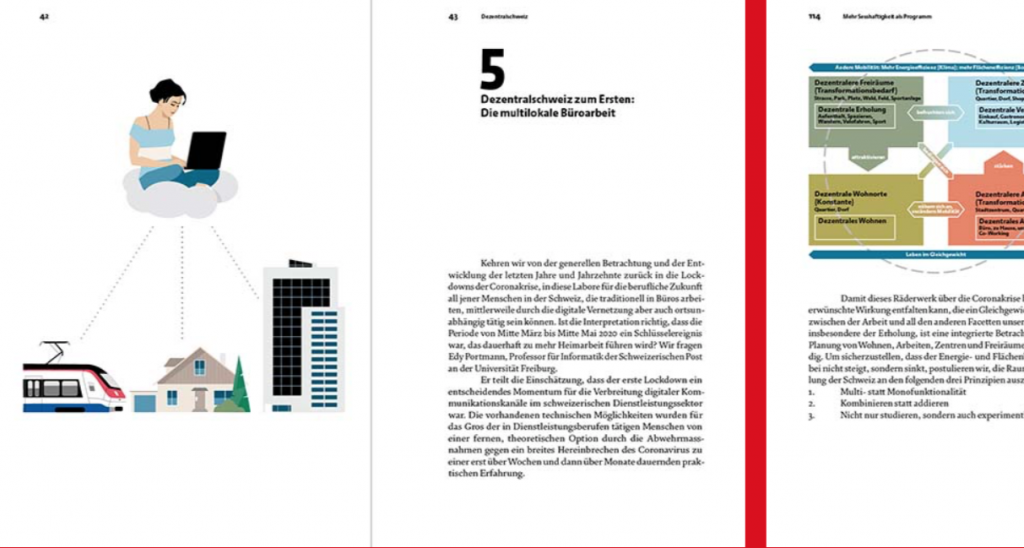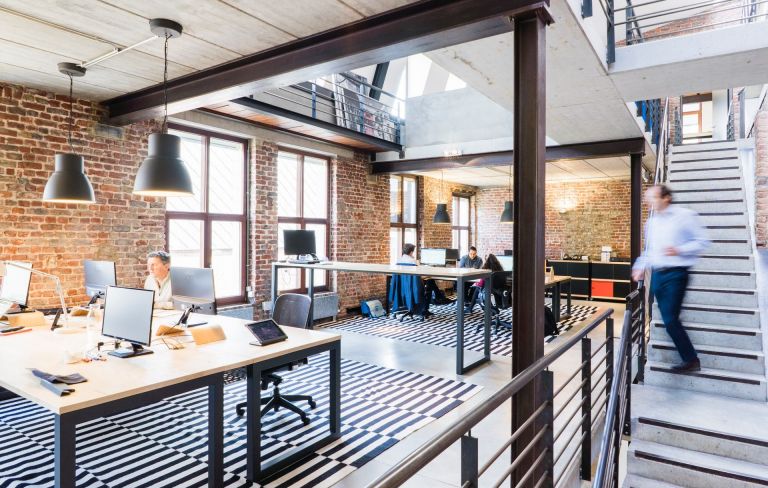‹Dezentralschweiz. How Corona is making us more settled and what that means for our habitats› is the title of the latest book from Edition Hochparterre. The authors show how the Corona crisis has radically changed our behaviour as commuters. This reversal of mobility behaviour is the starting point of the explanations in which the authors seek answers to numerous questions: What lessons and consequences can be drawn for the future design of Switzerland as a living space? What is needed to reduce our “forced mobility”? How can we succeed in making our decentralised places of residence attractive places to live? The goal is not only to live decentrally in the future, but also to work increasingly decentrally.

The book *Dezentralschweiz” – recently published by Edition Hochparterre – is richly illustrated. Picture: Excerpt from the contents
Historian and spatial planner Paul Schneeberger and geographer, urbanist and entrepreneur Joris Van Wezemael provide answers in ‹Dezentralschweiz›. They are based on reflections on innovation cycles and the history of settlement, on discussions with experts from the five subject areas of the world of work, mobility, housing, retail trade and open spaces, as well as on pioneering examples: The ‘Wunderraum’ work and exchange space in Pfäffikon, Lausanne’s new cycle lanes, the space-efficient Limmergy housing estate in Obersiggenthal, the enlarged centre for the Würzenbach neighbourhood in Lucerne, or the open schoolhouse spaces in Kloten.
‹Dezentralschweiz› is a reading book aimed at planners, politicians and all interested parties.
Information about the book Dezentralschweiz
The book ‹Dezentralschweiz. How Corona is making us more sedentary and what that means for our habitats› can be ordered online here.
Publisher and authors: Paul Schneeberger and Joris Van Wezemael
Design: TGG Hafen Senn Stieger, St. Gallen;
Illustrations: Eugen U. Fleckenstein, Winterthur ‹›››
128 pages, 11 illustrations, hardcover, 15 x 22 cm
ISBN 978-3-909928-73-6, CHF 39.- / € 35.-


